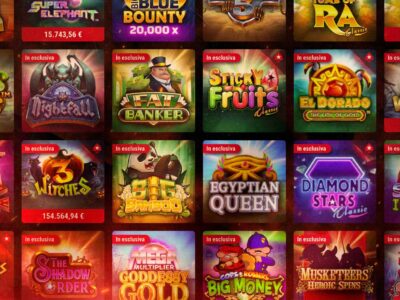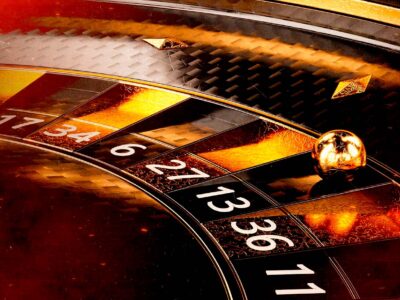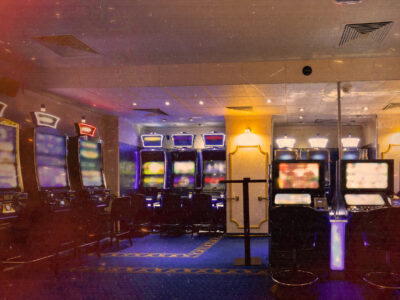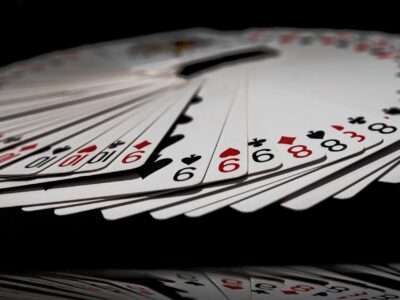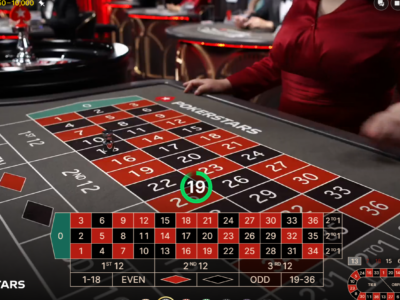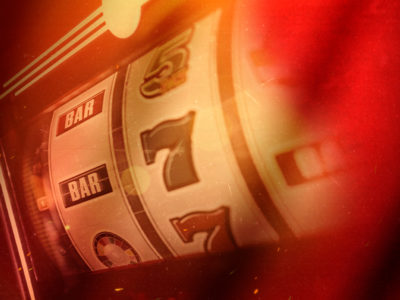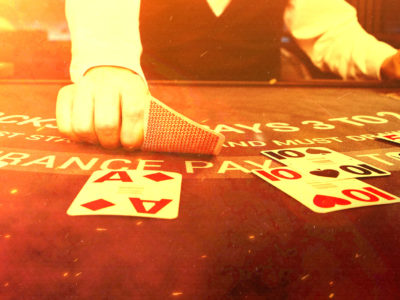No matter what your hobbies and profession, it’s always important to consider the health implications. Poker is no different.
Poker comes with its own set of health benefits and potential drawbacks. On the one hand, it’s good for your brain. Scientific research demonstrates this beyond mere anecdotal data. Yet the extreme focus that poker demands can be a double-edged sword. It’s essential to balance long hours at the tables with proper diet and exercise, or else succumb to a sedentary lifestyle and all of its curses.
Here we take you through the health benefits and explain why poker is ultimately good for you.
Is poker good for your brain?
Anyone who has spent time at the tables with elite pros can already tell you that poker is good for the brain. It’s an intensely complex and dynamic game, one that simultaneously demands focus, mathematical computation, psychological analysis, and complete adaptation to opponent’s tendencies.
Poker is an intellectual and creative pursuit, one which can stimulate the brain and enhance the mind.
According to mind coach Dr Stephen Simpson, who has worked with poker greats like Liv Boeree and Chris Moorman, poker helps to create new neurological pathways in the brain. As these pathways are continually strengthened and reinforced, a protective layer is formed known as Myelin. Myelination allows cells to transmit information faster and to deal with more complex brain processes, and is essential to a healthy central nervous system.
So playing poker, just like many complex processes of learning and reinforcement, really is good for the brain.
Incidentally, well practiced poker players are also developing patience, discipline, focus and concentration, as well as emotional control, all skills that can lead to positive life changes.
Inside the mind of a poker pro

Poker activates six key cognitive areas in the brain
In a study by a major gaming company, six poker players of various experience level were hooked up to an EEG. They had their brain signals measured whilst playing a game of poker, specifically during certain moments such as when the flop fell, or when faced with a raise. The study found that expert players were more engaged in logical information processing, and were less emotionally reactive to bad beats and the ups and downs of poker than a beginner. They were, neurologically speaking, less stressed out by poker scenarios.
If the player can carry this over as a general skill, this emotional control may have advantages in other areas of life. It could even serve to combat the ultimate destroyer of health… stress.
Stress and health
Stress is a survival function that causes several reactions in the body, such as raised heart rate, rapid breathing and muscle tension. It was incredibly useful for fleeing or defeating predators when roaming the Savannah. In modern times, it can help us to cross the road fast enough to avoid getting hit by a cargo truck. Stress is not so useful during a tense poker hand when you need to rationalize your opponent’s line of betting, nor is it useful for getting on with everyday life.
Unfortunately, stress has become a condition of modern society, something that we are constantly exposed to. Stress is very bad for you. It can reduce the functioning of nearly every faculty of the human body, from the immune system to cardiovascular health.
As shown by the EEG scans in the study, advanced poker players have more control over their emotional state, at least when faced with poker situations. Again, if they can carry this skill over, and understand the bad beats and statistical variance of life, then they may well adapted to dealing stress. Less stress equals a much healthier life.
As it stands, there isn’t enough research in this area. So far, we can demonstrate that poker pros are less emotionally reactive and stressed during common poker situations, but we cannot yet prove that this carries over into other areas of life.
Poker as a social game

Nothing beats a home game for the social element of poker
One of the health benefits of poker is the social aspect of the game. It’s not exactly solitaire. Poker involves a mad mix of different people coming together for their love of cards, and love of outwitting each other whilst playing cards. It’s beautiful stuff.
Live poker offers the most direct experience in terms of socializing. Nothing quite beats the face-to-face interaction, the banter, the love-hate relationship between you and that guy who just cracked your Aces… again.
Online poker offers social elements via the chat. Even though it’s over the internet, you are still playing with real people from around the world.
The benefits of socializing are well established. Amazingly, a healthy social life is correlated with a stronger immune system, better mental health, and less chance of memory loss. Gathering around for a game of cards has long provided social context. Although the players at the table may be your opponents, you are actually all cooperating to improve each other’s health. That’s nice, isn’t it?
Poker and old age
Here’s the kicker, and perhaps the most convincing evidence of poker benefits and why poker is good for you.
In research recently released by leading specialist Dr Jeffrey Cummings, poker was shown to dramatically reduce the chances of developing Alzheimer’s and other brain-related diseases associated with old age.
The research cites a French study conducted in 2009, in which 5,000 elderly patients played mentally stimulating games. There were other games that helped, but poker was shown to be the most effective for defending against age-related mental illnesses. Cummings suggests that playing poker twice a week could reduce the risk of Alzheimer’s by as much as 50 percent.
That’s not to say that poker cures Alzheimer’s. It’s not that simple and direct. What is most important is the cognitive stimulation and sense of purpose derived from the activity. It just so happens that poker is up there as one of the most cognitively stimulating games.
The more boxes the game ticks in six key cognitive areas, the better it is for the brain and for combating cognitive disorders. Chess ticks a lot of them. They key cognitive areas are: short term memory, long term memory, language, calculations, visual-spatial, and critical thinking. Poker has the capability to touch on them all, setting off fireworks in the brain.
Both live poker players and those who play online poker tackle a lot of calculations and encounter situations that demands critical thinking. You need both short term memory to keep a grip on how hands play out and who bets, and long term memory for tracking opponents and making mental notes on their style. Visual-spatial processing involves handling objects, so this is more relevant to live poker, which has physical cards and chips, although clicking a mouse and keyboard still qualify. Language is likely to be used more during live poker, but again is still used often online.
Engaging this combination of six key cognitive processes helps to keep the mind active, and may be the key to long term mental health.
Serious players and pros: beware the sedentary lifestyle
Poker, in and of itself, doesn’t have negative health effects. The game is not bad for your health.
What can become a problem is living a sedentary lifestyle.
A sedentary lifestyle is one which lacks physical exercise and movement. It’s a risk factor for anyone who works an office job or spends long hours in the lying or sitting position. If you don’t meet the recommended 150 minutes of moderate exercise a week, then you’re living one right now.
Serious online poker players often grind out long sessions at their computers, perhaps 7 – 12 hours a day, five days a week or more. It’s easy to see how quickly this could become ‘sedentary’. Poker pros will (or should) have their own ways of dealing with this.

“Emma”, our work colleague of the future.
Although you may have to sit long hours at your desk, you can still control other aspects of life to make sure you get the poker benefits, without the risks. It’s all about living a balanced and healthy life.
Proper posture – Nobody wants to be “Emma”, the work colleague with a permanently bent back. It’s important to invest in ergonomic equipment and practice keeping your posture correct correct. Adjust your chair to the right height and make sure your back is supported.
Exercise – There’s lots of recommendations for how much exercise you should do, from 150 minutes (per week), to 10,000 steps (around 5 miles) per day. Find out what activities work for you, and how much makes you feel good and healthy. Once you find something you enjoy, be it biking or hiking, stick with it.
Diet – Just like athletes, poker players at the highest level focus on healthy eating as one of the keys to their success. We’re not here to recommend a diet fad. Just eat a nutritionally balanced diet and find out what works for you. If you’re playing long poker tournament sessions, you may want to ‘graze’ on healthy snacks, as big carby meals will knock your concentration right off.
Screen time – Staring at a screen all day is bad for your eyes. Make sure you regularly look away and refocus to prevent strain and headaches. The 20-20-20 rule suggests that for every 20 minutes spent staring at a screen, you should look at an object 20 feet away for at least 20 seconds. You should also check out apps like Flux, which reduces blue light emitted from screens, or invest in blue light blocking gaming glasses for your online sessions.
Use the break wisely – The five minute break is your chance to refresh, refocus your eyes and, you know, take a break. Don’t just sit waiting for play to resume. As well as running to the bathroom (a situation nearly every online poker player will be familiar with), take time away from the screen to refocus your eyes and have a good stretch. Stand up and move around, get a drink and light snack, readjust your eyes, and only then sit down to resume play.
Balance life outside of poker – For the health benefits of poker to really shine, you need to balance life off the tables. The research suggests that poker is good for your brain, but if you do the same activity day-in, day-out, then this is really not good for you.
Sleep – We get it. You’re deep in a tournament, it’s way past your bedtime, and you don’t care. Sleep can wait! It’s all part of the competition. But once you’ve cracked that MTT wide open (or bubbled it after 10 hours of play), it’s time to rest. Sleep is one of the main ways to let your body and mind recover and to stay in good health.
Is poker good for you? – final thoughts
The benefits of poker have been well observed in scientific research, especially when it comes to the health benefits of poker on the brain. The most convincing body of research points to cognitively stimulating games as a way to reduce and prevent brain-related illnesses like Alzheimer’s and dementia.
In order to enjoy these poker benefits to their maximum, serious players need to make sure they do not end up living a sedentary lifestyle. Sitting for long hours and not getting enough exercise is bad for overall health. Online poker players should pay particular attention to this, making sure they balance life outside of the game with plenty of exercise, good diet and lots of rest.
If life is balanced, then poker can be said to be beneficial, especially on a mental level. So, enjoy the game, learn and grow, play with friends, and always know deep down that your competitors are actually your allies in good health.
Back to TopView Other Blogs











